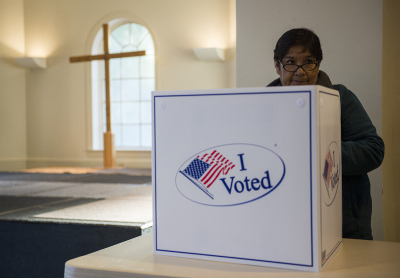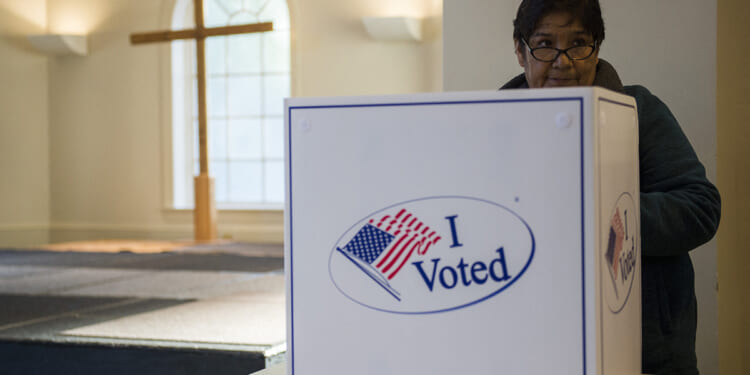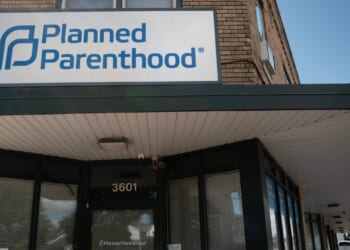
It’s one of the great paradoxes of our time. Many conservative pastors courageously preach a biblical worldview from their pulpits — defending life, marriage, and religious freedom — yet when it comes to the political process, they retreat into silence. They will preach about righteousness, but when Christian candidates who share their values ask for help — something as simple as gathering signatures to get on the ballot — they often decline.
This reluctance doesn’t just hurt individual candidates; it weakens the Church’s ability to influence culture. It leaves the field open for those whose values are hostile to the faith.
Pastors on the Left have no such reservations. As The Heart of Apostasy points out, churches aligned with progressive movements openly support initiatives like the Black Church PAC, mobilizing voters and resources for liberal causes. They see politics as an extension of their theology — a vehicle for advancing what they believe is justice. Meanwhile, too many conservative pastors treat the political process as “unspiritual,” as if God’s sovereignty ends at the voting booth.
This is more than perplexing — it’s tragic.
The political cycle should be one of the greatest opportunities for discipleship in the Church. Elections force us to confront moral questions about life, family, stewardship, and truth. They reveal whether we truly believe that Christ is Lord over all of life — including government. When pastors avoid this arena, they fail to teach their congregations how to live out their faith in the public square.
It’s not about partisanship; it’s about principle. Pastors should help their people discern candidates who uphold biblical truth, not shrink back out of fear of “dividing the congregation.” Division is not caused by truth — it’s caused by the refusal to stand on it. If a member of the congregation runs for office but holds values contrary to Scripture, that should not silence the Church; it should sharpen its teaching on what righteousness in leadership looks like.
When churches disengage, they unwittingly empower the very ideologies they preach against. Silence in the face of moral decay is not neutrality — it’s complicity.
We’ve already seen the cost of silence. Charlie Kirk lost his life engaging the Church, calling believers to stand for truth and courage in a time of moral confusion. Dr. Voddie Baucham spent his final days warning the Church about the dangers of Cultural Marxism and the falling away from biblical orthodoxy in both the pulpit and the public square. These men did not shrink back; they gave everything to awaken the Church to its responsibility. Their voices remind us that faith without action is dead — and that silence in the face of deception is itself a form of apostasy.
Our faith compels us to act. Elections are not distractions from the Gospel; they are moments when the Gospel’s implications are tested in public life. Helping a godly candidate get on the ballot is not “political.” It’s obedience to Christ’s call to be salt and light in every sphere.
It’s time for pastors to rediscover their prophetic role — not as political operatives, but as shepherds who guide their flocks to think biblically about everything, including the ballot box. The Church must stop viewing civic engagement as optional. It is, in fact, one of the most spiritual acts a believer can perform: applying biblical truth to the stewardship of freedom.
If the Church won’t engage the culture when it matters most, then it has surrendered the moral authority to complain about the direction that culture takes.
Dr. Eric M. Wallace, author of the new book, The Heart of Apostasy: How The Black Church Abandoned Biblical Authority for Political Ideology–And How to Reclaim It, is a trailblazing scholar, dynamic speaker, and passionate advocate for faith-based conservatism. With a distinguished academic background and an unwavering commitment to biblical truth, Wallace has become a leading voice challenging cultural and political narratives that conflict with a biblical worldview.Wallace holds postgraduate degrees in biblical studies (M.A., ThM, Ph.D.), Wallace is the first African American to earn a Ph.D. in biblical studies from Union-PSCE (now Union Presbyterian Seminary). His scholarship and ministry experience equip him to address today’s most pressing sociopolitical issues through the lens of faith, reason, and historical accuracy.

















